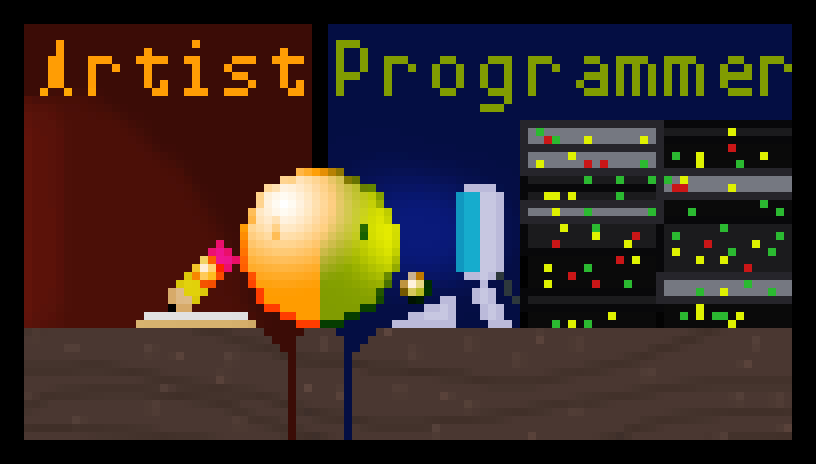 So you think you can be a game developer?
So you think you can be a game developer?
Well, getting the concept ready for your game was just the beginning. Like I said in my previous article, you have not started a game till you have something that you can actually play!!
So, now that you’ve got a working prototype ready. How do you decide whether it is something that you’d want to commit to for the next few months, of if it isn’t working and you need to come up with something else?
Here are some points you need to keep in mind, once you’ve started developing your game.
- Make sure the core mechanics are fun.
- Choose good partners (or work alone as long as you can).
- Test it among your target audience.
- Factor the boring things into your plan.
- Have realistic deadlines.
1) Make sure the core mechanics are fun
 So, if someone asks, “what does the user do in your game” and your answer is ‘hey they can do ANYTHING they want!”, your users are back to playing Minecraft.
So, if someone asks, “what does the user do in your game” and your answer is ‘hey they can do ANYTHING they want!”, your users are back to playing Minecraft.
Don’t be too ambitious about your first project. Make sure the core mechanics are fun to play around with because ultimately these core mechanics are what will drive your game. Try not to do everything at once.
While you are prototyping, it is possible that you discover a mechanic that is more fun than your original idea. Consider making that your new core mechanic, because this is what your player will be doing the most while playing your game. Make sure that you put in enough thought into it.
2) Choose good partners (or work alone as long as you can)
I’d read somewhere that “finding a good game-making partner is like dating in a lot of ways.” A programmer and an artist combination is not going to work out smoothly all of the time. There are a lot of things to consider like mutual interest, experience, and timing. Like a romantic relationship, you don’t want to be the one who is giving his 100% while the other isn’t as dedicated. Try to sit down and talk things out. Try to see that the other person is equally excited about the game because it is really difficult if one of your partners drops out towards the end of the project or isn’t equally passionate towards it.
Also, try looking for an artist towards the end of your project, rather than having someone from the beginning. Consider working with placeholder content for the major part of your development process because an artist would much rather contribute to a project that is ready and is just missing art. Also, you cannot be sure about the artwork required for the game until its final stages.
For example, towards the beginning of my game, there was a hot-air balloon that flew across the screen that my character crashed into and would die. Later on I replaced that with this really quirky bee cartoon. In terms of code there wasn’t much that was required to be done, but if I had an artist redo such things throughout the development process, he’d get really irritated. Try to get hold of an artist towards the end.
3) Test it among your target audience
Like I said at the beginning. Make sure your core mechanics are fun to play with. Once you have your core mechanics ready, try to test it out on your target audience. Try looking for people in your immediate circle during the initial stages and get feedback from them. Make sure you consider their feedback, and also try to see their reactions while playing your game. See if they are finding it difficult to grasp the basics of the game or not. Make sure to test on a regular basis, mostly when you make a major development in the game. Try to get as much feedback as possible. Compare it with your previous versions. People might not always like the updated version, and consider going back and correcting your mistake. If there is something that the users are finding hard to understand, consider changing it or scrapping it in some cases.
4) Factor the boring things into your plan
At some point you’ll suddenly realize that there’s all this stuff that you never thought about while you were prototyping or during your planning stage. This includes menus, save/load options, pause screens, screen transitions. I had always imagined that game making would be this process where you create this really awesome world or mechanic, play around with it, and basically I am the god there. If you say the gravity is 15, it’s 15! However, a lot of the game making process is tedious and downright unfun. These are the kind of things companies hire interns to do! ![]()
But try to make sure you have factored these things into your plan and have allotted enough time. If your menu screen looks boring, or dull, it just spoils the first impression of the game. A nice ‘splash screen’ does wonders to make a game feel legitimate. You’ll realise that a lot of this boring stuff is what makes the game feel complete!
5) Have realistic deadlines
 Have a realistic deadline and work towards it. Plan out your day properly so that you have enough time for coding as well as sketching. Make sure you stick to the deadlines. Start off with giving yourself daily deadlines and see how you’ve done towards the end of the week. If something was missed, try to complete it during the weekends. But make sure you don’t get stuck on one thing throughout. If there is something you’ve gotten stuck on, try to move on to the next thing and get back to it on the weekend. It is always important to keep moving forward.
Have a realistic deadline and work towards it. Plan out your day properly so that you have enough time for coding as well as sketching. Make sure you stick to the deadlines. Start off with giving yourself daily deadlines and see how you’ve done towards the end of the week. If something was missed, try to complete it during the weekends. But make sure you don’t get stuck on one thing throughout. If there is something you’ve gotten stuck on, try to move on to the next thing and get back to it on the weekend. It is always important to keep moving forward.
Well, that’s all for the development stage guidelines. In my next article, I plan on covering a few important points on how to get started with designing the logo for your game.
If you’ve recently started working on your first game. Let us know what you would like to read, or how you found this article in the comments below.
“Whatever you can do, or dream you can, begin it. Boldness has genius, power and magic in it.” –Johann Wolfgang von Goethe
© 2013, The Indie Mine. All rights reserved.




